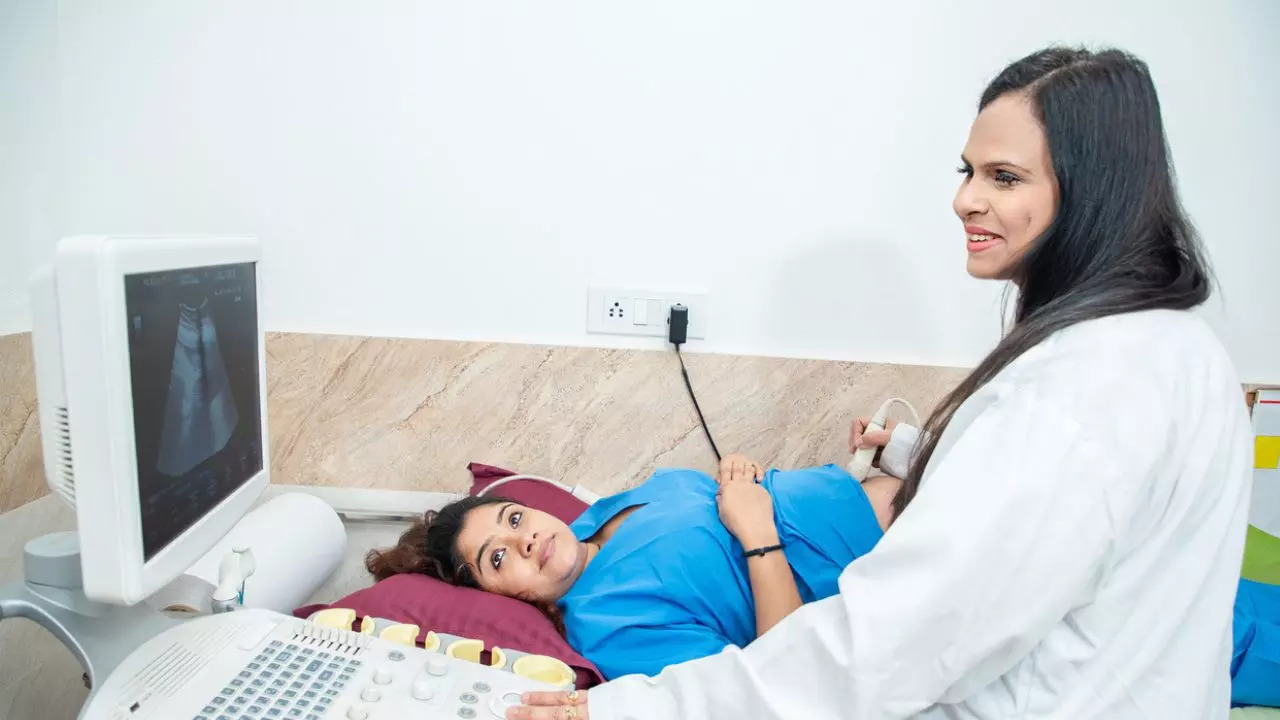From conception to birth: An expert shares a list of all the essential tests during pregnancy. (Image: iStock)
The journey from conception to delivery is a rollercoaster of emotions, filled with anticipation, excitement and a hint of anxiety. Regular antenatal care and essential tests play a pivotal role in ensuring a healthy pregnancy and a happy, healthy baby. Times Now Digital spoke to Dr Kaishreen Khan, Consultant Obstetrician and Gynaecologist, Motherhood Hospitals to delve deeper into the importance of these tests and how they contribute to a smoother pregnancy.
Why are prenatal tests important?
Prenatal testing is a diagnostic tool that helps monitor the health of both the mother and the developing fetus. “It can detect potential complications early, allowing for timely interventions and ensuring the best possible outcome. These tests also provide expectant parents with crucial information about their baby’s development, alleviating worries and fostering a deeper bond,” explained Dr. Kaishreen.
Essential tests during pregnancy
- Blood test:Early in pregnancy, blood tests help establish a baseline for the mother’s health by monitoring blood type, Rh factor, anemia, infections (such as rubella, hepatitis B, and HIV), and immunity to certain diseases. Throughout pregnancy, blood tests monitor blood sugar levels (to detect gestational diabetes), thyroid function, and other essential markers.
- Ultrasound:This imaging technique uses sound waves to create images of the fetus. It helps determine gestational age, confirm fetal viability, detect multiple pregnancies, assess fetal growth, and identify possible structural abnormalities. Routine ultrasounds are typically performed at 12, 20, and 32 weeks of pregnancy, but additional scans may be necessary depending on the specific circumstances.
- Genetic detectionGenetic screening, offered to all pregnant women, helps assess the risk of chromosomal abnormalities such as Down syndrome, trisomy 18, and trisomy 13. Common screening tests include combined testing (blood test and ultrasound) and noninvasive prenatal testing (NIPT), which analyzes fetal DNA in the mother’s blood.
- NIPT (Non-invasive prenatal testing):A highly accurate blood test that can detect chromosomal abnormalities and some genetic diseases as early as 10 weeks of pregnancy. It offers a lower risk of miscarriage compared to invasive tests such as amniocentesis or chorionic villus sampling (CVS).
- Amniocentesis: An invasive procedure that involves removing a small amount of amniotic fluid for genetic testing. It is generally recommended for women at higher risk for chromosomal abnormalities or for those with previous pregnancies affected by genetic disorders.
- Chorionic villus sampling (CVS):Another invasive procedure that involves taking a sample of placental tissue for genetic testing. It may be performed before amniocentesis, usually between weeks 10 and 13 of pregnancy.
- Detection of alpha-fetoprotein (AFP): A blood test that measures the level of alpha-fetoprotein, a substance produced by the fetus. Abnormal levels of AFP may indicate possible neural tube defects or other abnormalities.
Important things to keep in mind
- The frequency and types of testing may vary depending on factors such as maternal age, medical history, and risk factors.
- It is essential to discuss your concerns and questions with your health care provider to make informed decisions about prenatal testing.
- While tests can provide valuable information, they do not always accurately predict the outcome of a pregnancy.
Remember that prenatal care is a partnership between you and your health care provider. By working together, you can navigate the process from conception to birth with confidence and enthusiasm.
Disclaimer:
The information contained in this post is for general information purposes only. We make no representations or warranties of any kind, express or implied, about the completeness, accuracy, reliability, suitability or availability with respect to the website or the information, products, services, or related graphics contained on the post for any purpose.
We respect the intellectual property rights of content creators. If you are the owner of any material featured on our website and have concerns about its use, please contact us. We are committed to addressing any copyright issues promptly and will remove any material within 2 days of receiving a request from the rightful owner.

